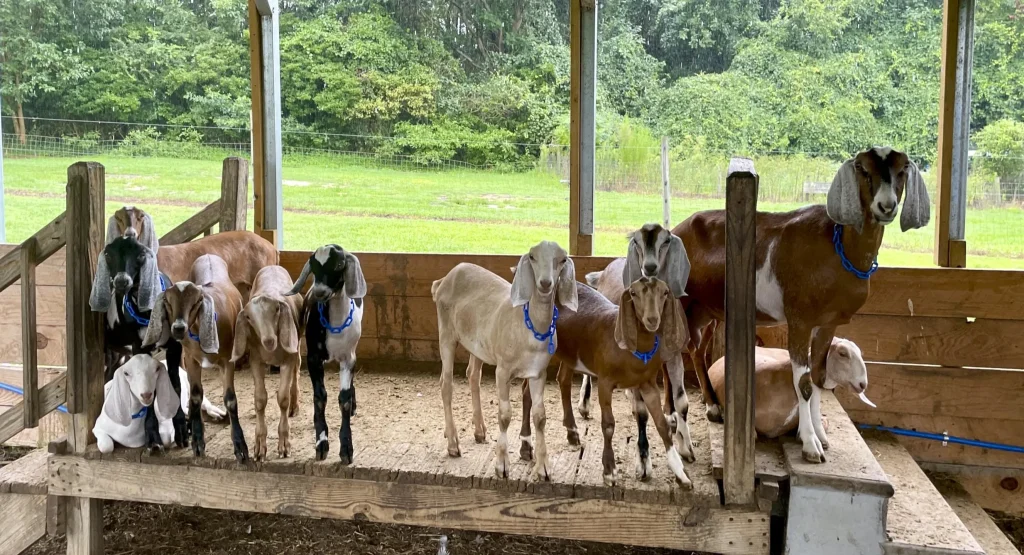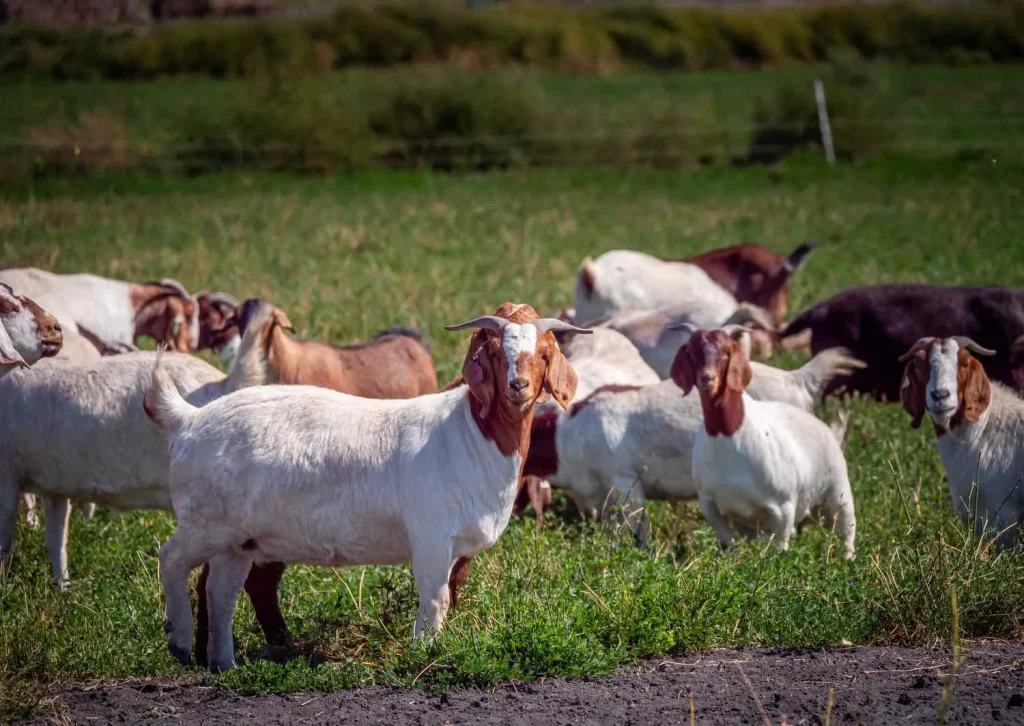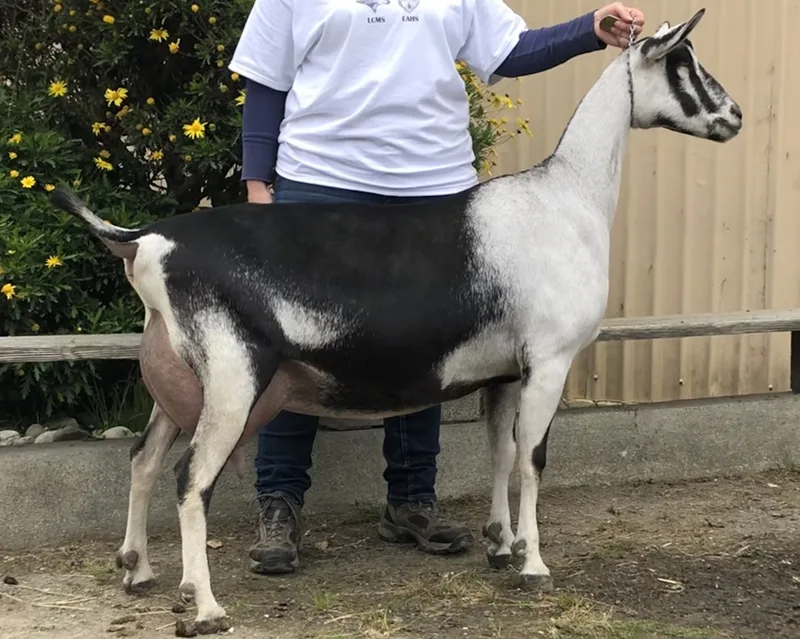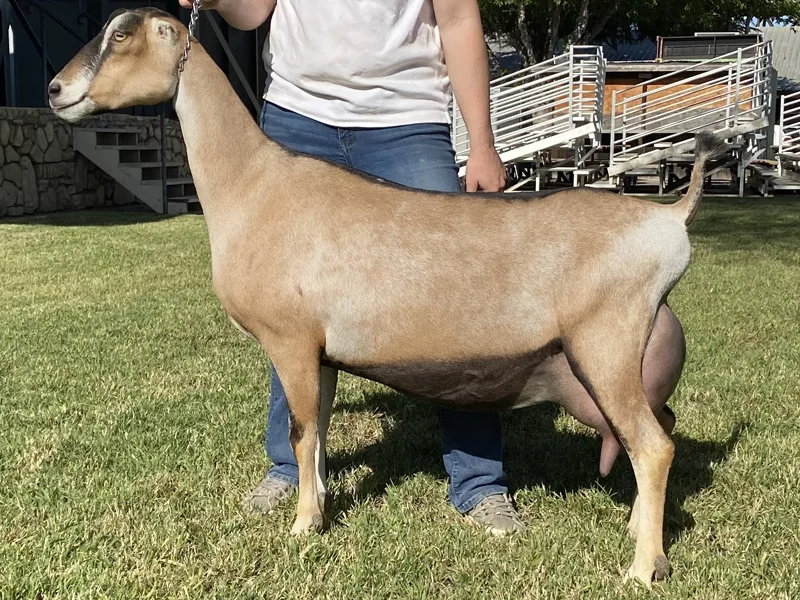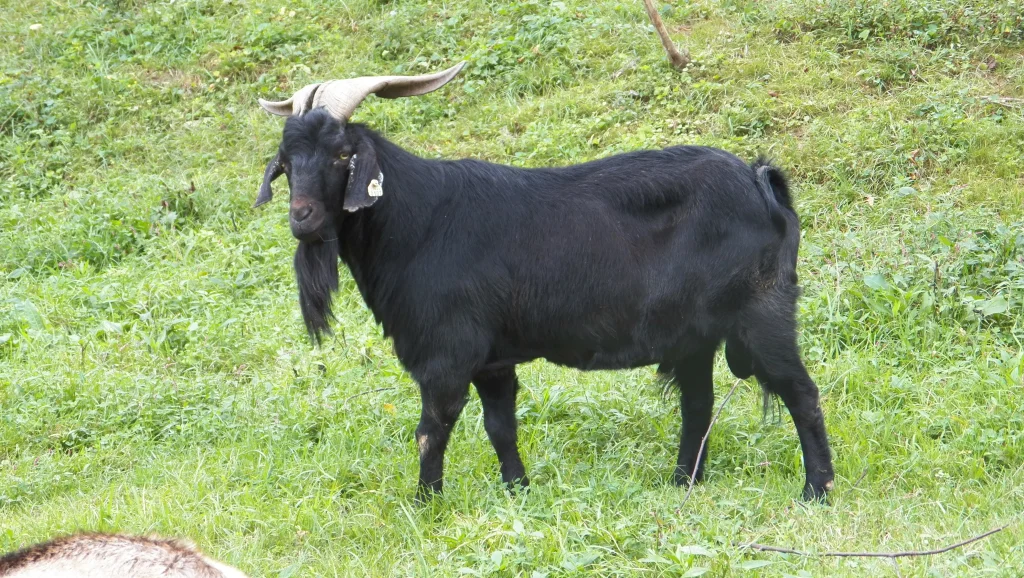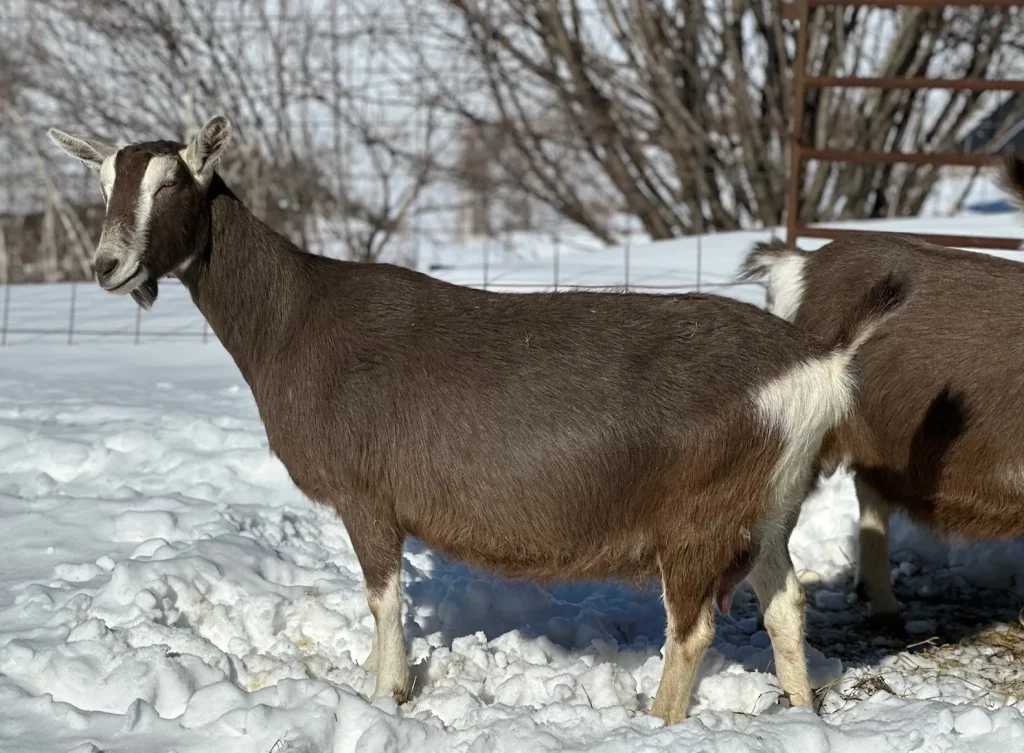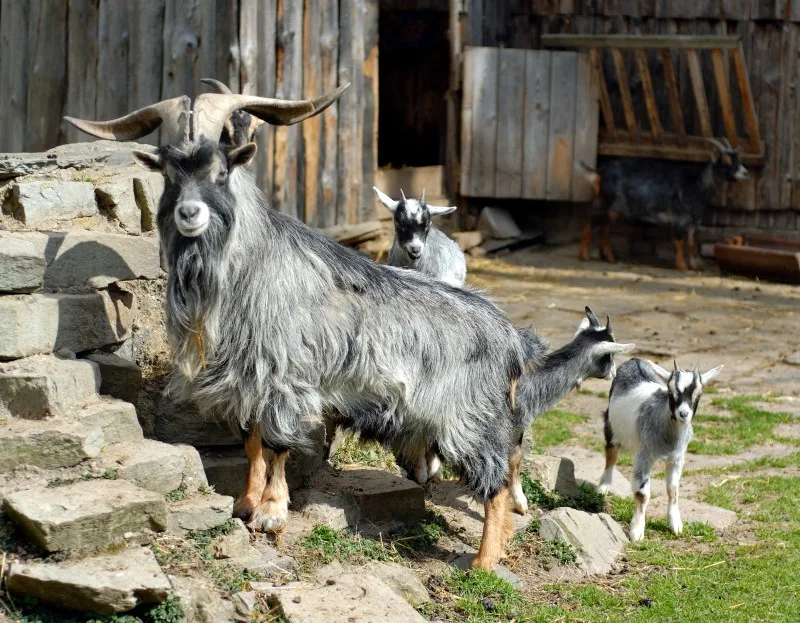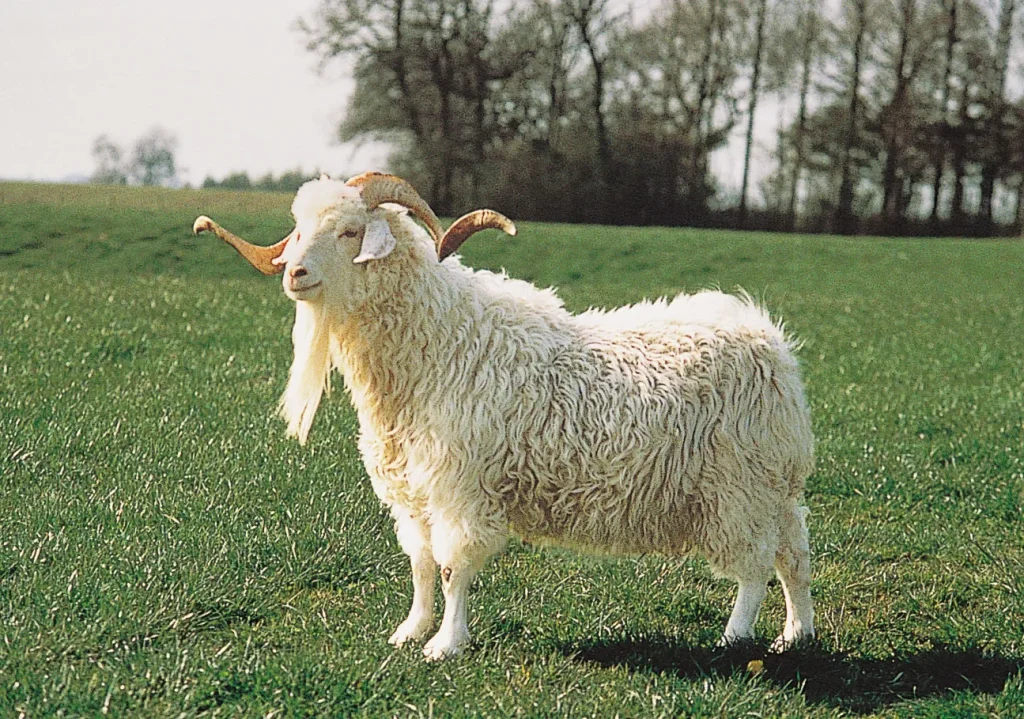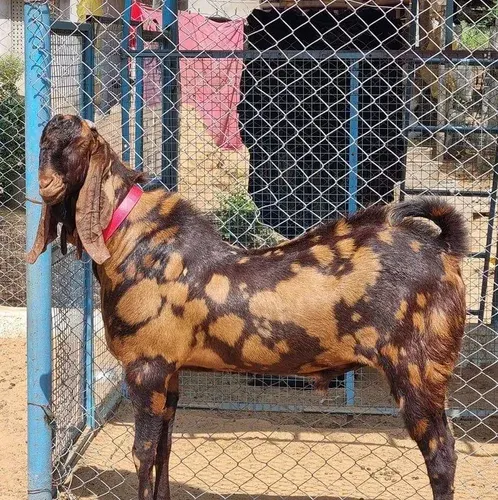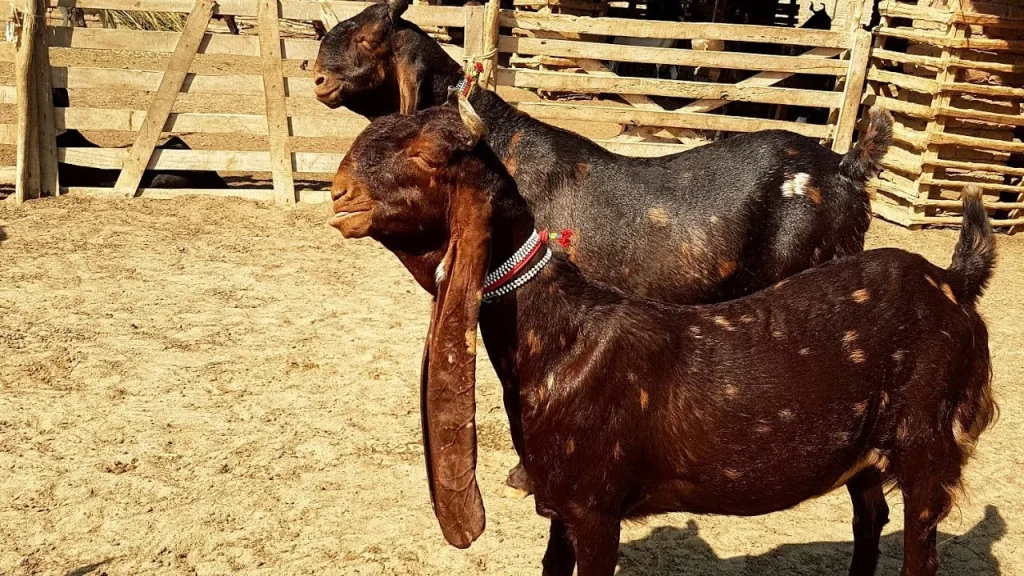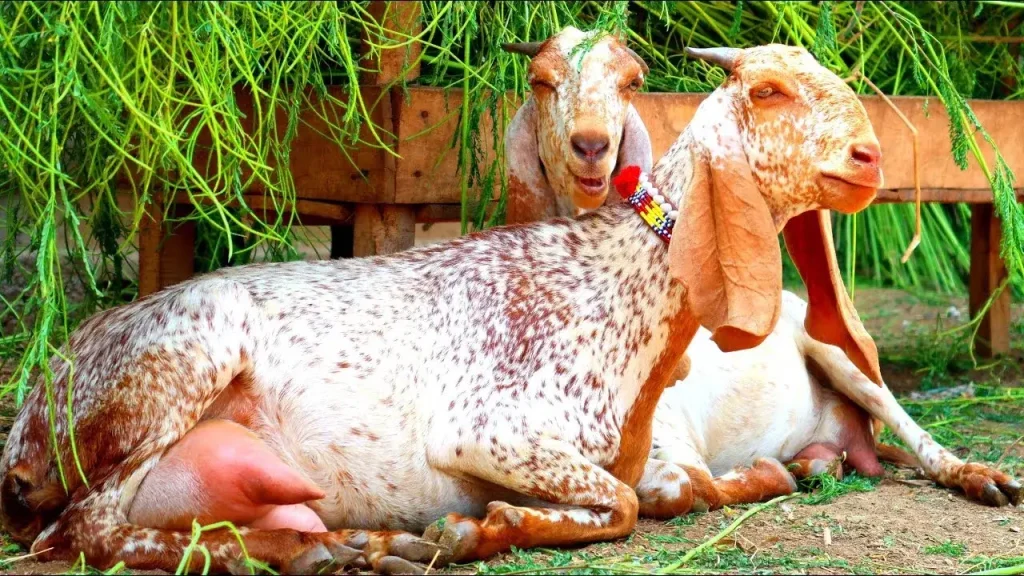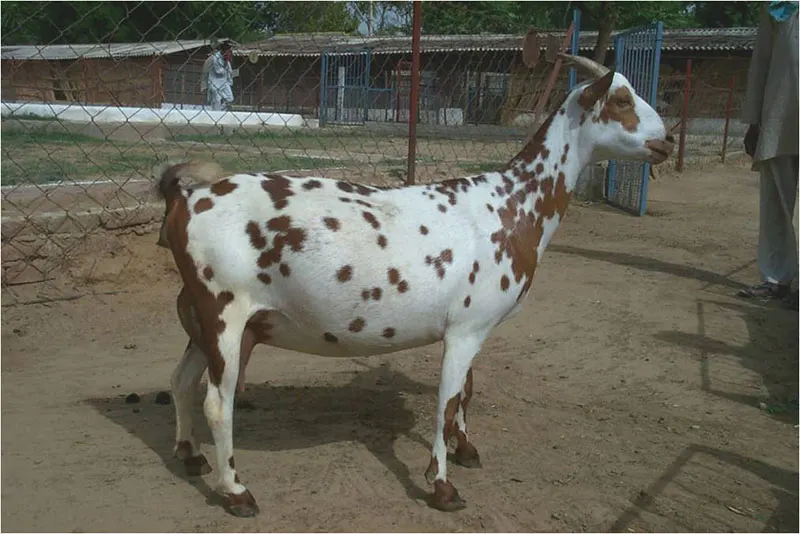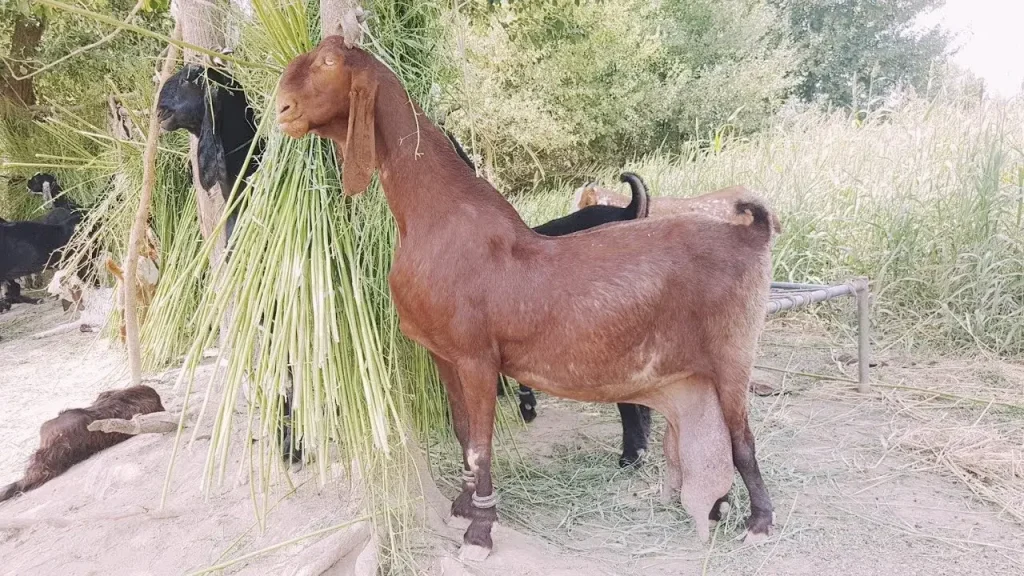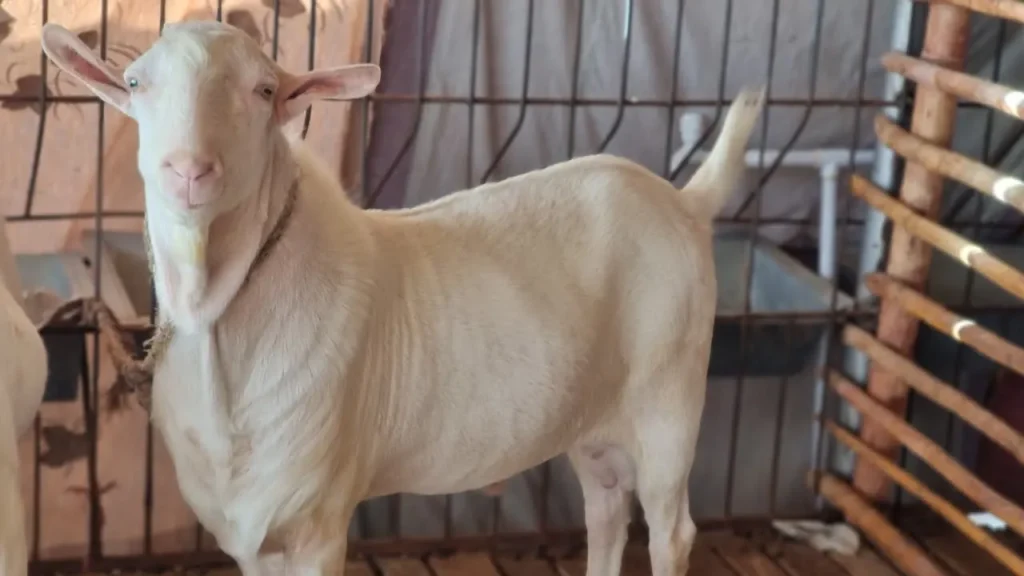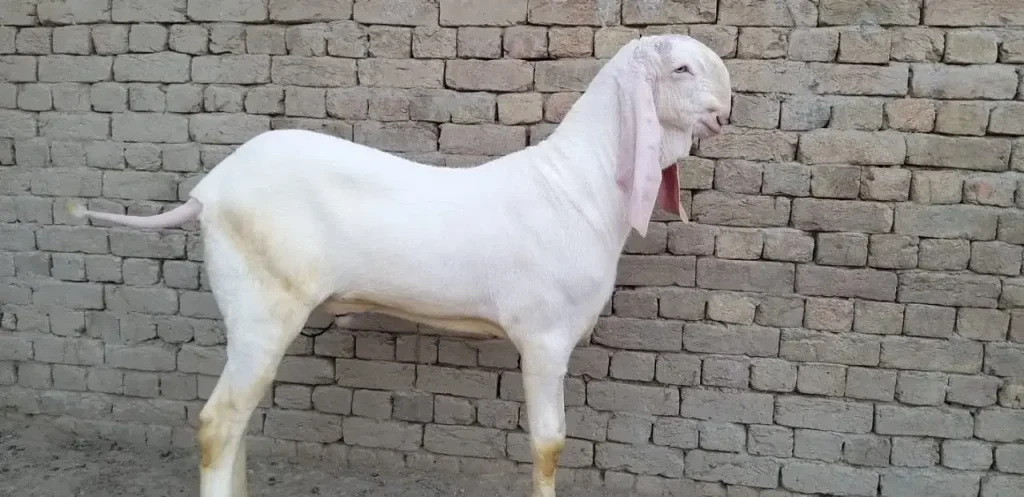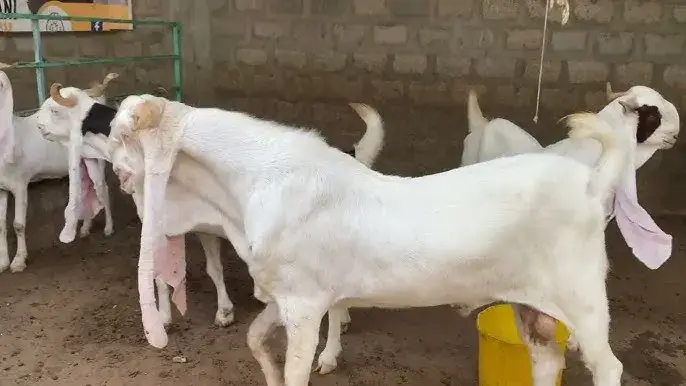🐐 Nubian Goat – The Friendly and Versatile Dairy Goat
🌟 Introduction
The Nubian Goat, also known as the Anglo-Nubian, is one of the most beloved and recognizable goat breeds worldwide. Known for its long floppy ears, Roman nose, and social nature, the Nubian Goat is a top choice for both small-scale farmers and homesteaders. This breed isn’t just adorable—it’s also a high-performing dairy goat with a rich milk yield and a lovable personality.
📜 History and Origin
The Nubian Goat has its roots in England, where it was developed by crossing native British goats with Middle Eastern and North African breeds. The goal was to create a breed that could thrive in hot climates while producing rich, creamy milk.
Introduced in the late 19th century, the Anglo-Nubian gained popularity for its adaptability and productivity. Today, it’s cherished around the world, especially in the United States, the UK, and parts of Africa and Asia.
🧬 Physical Appearance
Nubian Goats are easy to spot thanks to their large, floppy ears and curved, Roman-style noses. They come in a wide variety of coat colors, including black, brown, white, red, and even spotted combinations. This makes each Nubian goat visually unique.
They are medium to large-sized goats with a strong, well-muscled frame. Males (bucks) typically weigh between 175 to 200 pounds, while females (does) weigh around 135 pounds. Their sleek, short coats require minimal grooming, adding to their appeal for beginner farmers.
🥛 Milk Production
Nubian Goats are celebrated for their high butterfat milk, often ranging from 4% to 5%. This makes their milk ideal for producing cheese, yogurt, and butter. Although they may produce slightly less milk than some other dairy breeds like the Saanen or Alpine, the richness of Nubian milk more than makes up for it.
On average, a healthy Nubian doe can produce 1 to 2 gallons of milk per day during peak lactation. Their long lactation period also makes them a reliable source of milk throughout most of the year.
🐐 Temperament and Behavior
Nubians are known for their affectionate, friendly personalities. They love interacting with humans and other animals, making them a great choice for families, hobby farms, and petting zoos. They are also quite vocal—don’t be surprised if they “talk” to you often!
Their curious and intelligent nature means they need plenty of stimulation and space to roam. Boredom can lead to mischief, so toys, climbing structures, and regular human interaction are important.
🏡 Housing and Environment
Nubian Goats adapt well to various climates but prefer dry, well-ventilated shelters. Their housing should offer protection from rain and cold winds, especially during winter. Fencing must be sturdy and at least 4 to 5 feet high, as these goats are known to be skilled escape artists.
Access to clean, dry bedding and regular cleaning is essential to prevent health issues like hoof rot or respiratory infections.
🥗 Diet and Nutrition
Nubians thrive on a balanced diet of fresh hay, grains, and pasture. Alfalfa hay is especially good for milking does because of its higher calcium content. Grains should be offered in moderation, and mineral supplements must be available at all times.
Clean, fresh water is a must, especially for lactating does. You can also offer occasional treats like fruits and vegetables (carrots, apples, etc.) to keep them happy and healthy.
🛡️ Health and Care
These goats are generally hardy, but like all livestock, they require regular veterinary care. Deworming, vaccinations, and hoof trimming are essential. Nubians are prone to ear infections due to their long ears, so routine checks are important.
Monitoring body weight, milk production, and behavior helps catch early signs of illness. Maintaining hygiene in their living area also plays a big role in disease prevention.
👨👩👧👦 Family-Friendly and Inclusive
Nubian Goats are incredibly people-oriented and do well in inclusive, family-based settings. Their gentle disposition makes them great companions for children and elderly individuals alike. They respond well to kind handling and can even be leash-trained.
Whether you’re a beginner or an experienced farmer, these goats offer an engaging and rewarding experience.
📈 Popularity and Uses
The Nubian Goat is a staple in both commercial and backyard farming setups. Their milk’s high butterfat content makes them a favorite among artisan dairy producers. They are also kept as show animals and beloved pets.
Their increasing presence in goat yoga and urban farms highlights just how versatile and adaptable they are.
🌟 Fun Facts About Nubian Goats
- Nubians are one of the most vocal goat breeds.
- They can live up to 12–15 years with proper care.
- Their milk is so rich, it’s often used for making gourmet cheeses.
- Nubian Goats can be trained to walk on a leash.
- They thrive in warm climates thanks to their desert ancestry.
❓ Frequently Asked Questions
Q1: Are Nubian Goats good for small farms?
A: Absolutely! They are friendly, productive, and easy to manage—perfect for small-scale operations.
Q2: Do they get along with other animals?
A: Yes, Nubians are social and usually get along well with other goats, livestock, and even pets.
Q3: How long do Nubian Goats produce milk?
A: A healthy doe can produce milk for up to 10 months after kidding, depending on care and feeding.
Q4: Can children safely care for Nubian Goats?
A: With adult supervision, children can safely interact and care for these gentle goats.
Q5: Do Nubians need special grooming?
A: Their short coat requires minimal grooming—just regular brushing and ear checks will do.
✅ Conclusion
The Nubian Goat stands out as one of the most charming and useful goat breeds around. Its rich milk, sociable temperament, and striking appearance make it ideal for farmers and families alike. Whether you’re looking to start a dairy project, expand your homestead, or simply enjoy a lovable barnyard friend, the Nubian Goat delivers on all fronts. Boer Goat
